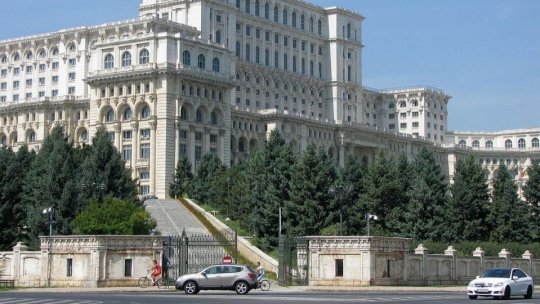Financial Press Review, February 3
How real the efforts to get out of recession are and the tide of legislative changes are two of the many hot topics covered in the last financial press review.

Articol de Dinu Dragomirescu, 03 Februarie 2011, 18:57
Under the headline‘Recession extension give foreign investors the creeps’, the Ziarul Financiar writes - quoting the chief economist of UniCredit Tiriac Bank, Rozalia Pal - that’the Romanian economy separating from other countries in Central and Eastern Europe which managed to emerge from recession ever since last year, is a concern to foreign investors and only further reforms in the public sector could relieve their negative feelings (...)
The 2010 experience shows that the mere cutting of public expenditure is not sufficient to pull the economy out of recession, and the lack of growth will not attract investors, thus creating a vicious circle’.
‘Investors are reluctant because Romania comes last’, the Curierul National reads.
In the 22 magazine, Dan Suciu expressed his surprise at the IMF astonishment that Romania registered economic growth, since nearly all the Fund requirements laid down in the agreement with the Romanian government didn't even cover such thing.
‘As things look now, growth can only come as a natural phenomenon.’
‘It has the same lack of determination of a meteorological phenomenon.’
‘So if we're lucky, it rains. Or we grow,’ the author concludes.
Mircea Cosea also deals with the extension of economic contraction in an article in the weekly the Economistul called ’Crisis - from the “original sin” to so called measures’.
‘For us, the crisis is a “bomb” that fell unexpectedly on our heads, a damage caused exclusively from the outside, but which also has the advantage of being the most convenient explanation for all internal failures, failings, mistakes and delays manifested in the act of governance.’
As a result,’there were taken into account only the effects of the international crisis, without paying attention to the effects of structural crisis that Romania has still been acutely feeling for many years (...) The type of anti-crisis measures which were taken from the beginning of 2009 can only slower the economy fall in the best case, but, conceptually, they can not be included into the anti-crisis measures category,’ we read in the Economistul.
‘This goal could only be achieved under the conditions of an existing “crisis strategy”, meaning a flow chart of prospective thinking in which the measures should be inserted into extensive programs of rethinking and restructuring the national economy on the principle of recovery of the internal potential of the production factors and on the stimulation of the domestic entrepreneurial capacity.’
In an article entitled’State wants to finance 50 percent of youngsters’ business plans’, the newspaper Bursa announced the launching into public debate by the Ministry of Economy of a draft emergency ordinance that wants to stimulate the creation and development of microenterprises by young entrepreneurs.
Under the headline ’Romania, a country governed by 95 000 laws’.
‚How to get rid of laws ”madness”?’ - the Ziarul Financiar published an article about the’tide of legislative changes’.
A tide ’that exasperates both citizens and businesses and which not only has its origin in the need for legislative changes after the revolution, but also in the ease with which the governments that have come and gone in 20 years have adopted the emergency ordinance’.
‘The practice of legislating through emergency ordinances remains strong, and the phenomen weakens the role of Parliament that has difficulties in amending or rejecting the emergency ordinances, as many of them end up in the parliamentary debate after they have already left caused consequences.’
‘Romania does not need so many laws. The focus should be on fewer and better laws that do not change from day to day’, the Ziarul Financiar quoted Vasile Puscas, our country’s former chief negotiator with the European Union .
Translated by: Iulia Florescu
MA Student, MTTLC student, Bucharest University













